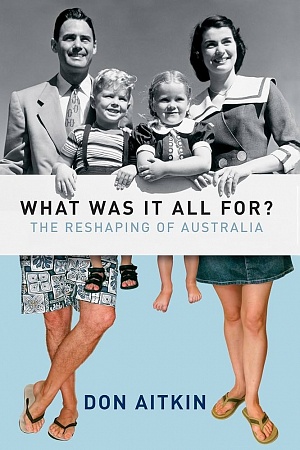The Future of an Illusion
Common to much Enlightenment and nineteenth century liberal thought was a belief that, as people became better educated and more affluent, so too would there be a corresponding decline of religious beliefs. This was central to the view of those two quintessential ‘modern’ thinkers, Karl Marx and Sigmund Freud, who spoke respectively of ‘the opium of the people’ and of ‘the future of an illusion’. Marx’s views expressed those of large numbers of nineteenth and twentieth century critics: ‘Religion is the sigh of the creature overwhelmed by misfortune, the sentiment of a heartless world, and the soul of soulless conditions.’ Today many sociologists write as if the old fears and/or promises that God is dead were a description of social reality for most people. This secular triumphalism seems to me badly misplaced, except in a relatively few Western countries.
At the beginning of the twenty first century, it appears that religious beliefs have lasted rather better than the idealism - some would claim themselves theological - of either Marx or Freud. Freud’s eschatology, in particular, has remarkable similarities to the dominant myths of Judaeo-Christianity, with the Oedipus complex playing the role of Original Sin in psychoanalytic theory, as Martin Wain has pointed out.
Except in a few countries, the Catholic Church has outlived its sworn enemy, the international communist movement, while fundamentalist Protestantism, Islam, Hinduism and Judaism seem to be on the rise in most parts of the world.(The last battle between communism and Christianity may well be the battle to unify Korea, with many South Korean Christians seeing unification as an opportunity for largescale missionary activity.) While it is probably true that fundamentalism is often an expression of hostility towards various manifestations of ‘modernity’ and ‘Westernisation’, it is also the case that the religious element is far more resilient than most thinkers would have prophesised a century ago.
It is worth noting that, according to figures collected by Time magazine in 2001, Christianity remains the most widespread religion in the current world, with an estimated 1.9 billion adherents in 2000, threequarters of them Catholic. There are an estimated 1.2 billion Muslims, 800 million Hindus and 360 million Buddhists, with much smaller numbers of Sikhs and Jews. These figures omit the vast array of religious beliefs that persist outside the hegemonic religions, or, increasingly, coexist with Christianity and Islam in many parts of the poor world. Both Islam and those classified as ‘nonreligious’ are listed as the fastest growing groups, and Confucianism is not mentioned, a reflection perhaps of confusion as to whether it is better understood as a religious or ethical system. In the contemporary world, Christianity and Islam stand apart as the two major proselytising religions, and the only ones whose adherents are genuinely global and not concentrated among one or two particular countries or ethnic groups. Where they collide - as in Lebanon, the former Yugoslavia and parts of India and Indonesia - the consequences are not infrequently bloody.
In the contemporary world, the most common examples of violence and persecution linked to religion seem to come from the Islamic world, though even to assert this is to risk giving political offence. Indeed, the more that Western governments, led by the US, try to rally support against religious based terrorism, the more they feel obliged to deny the link, to depict those terrorists who claim support from their religious convictions as somehow false believers.
Yet one can deplore attacks on individuals because they appear to hold particular beliefs while retaining the intellectual right to criticise the logic of those beliefs. It is hardly controversial today to point to the extent to which largescale murder was justified as part of the imperial European expansion into the rest of the world through appeals to the Christian mission. Priests and missionaries were often the frontrunners of the imperialist venture, and apologists for the worst sort of barbarity. Islam hardly has a monopoly on links to violence and intolerance - consider the ravages of fundamentalist Hindus, Christians and Jews - but, in this particular moment of world history, there are probably more Muslims who turn to religion to justify attacks on their opponents than practitioners of any other religion. At the same time, we should not forget the recent slaughter of Muslims by Christian Serbs in Bosnia, or by Hindus in Gujarat, or the role of Christians, including priests and nuns, in internecine slaughter in Rwanda. Most fundamentalist believers are willing to condone violence when directed against those they regard as sufficiently sinful, and Christianity has a long history of extraordinary barbarism.
I want to ask two questions, beginning with this apparent persistence of religion despite huge rises in affluence and education. This is an historical and sociological question, but it overlaps with a more profoundly personal and philosophic one, namely, how can people who appear to agree on much in the social and political sphere disagree profoundly about the basis for their beliefs? There are many people whose commitment to social justice stems from deepseated religious beliefs, but there are equally many, of whom I am one, who share such commitments without any religious foundation or with an instinctive antipathy to all forms of organised religion.
Continue reading for only $10 per month. Subscribe and gain full access to Australian Book Review. Already a subscriber? Sign in. If you need assistance, feel free to contact us.










Leave a comment
If you are an ABR subscriber, you will need to sign in to post a comment.
If you have forgotten your sign in details, or if you receive an error message when trying to submit your comment, please email your comment (and the name of the article to which it relates) to ABR Comments. We will review your comment and, subject to approval, we will post it under your name.
Please note that all comments must be approved by ABR and comply with our Terms & Conditions.